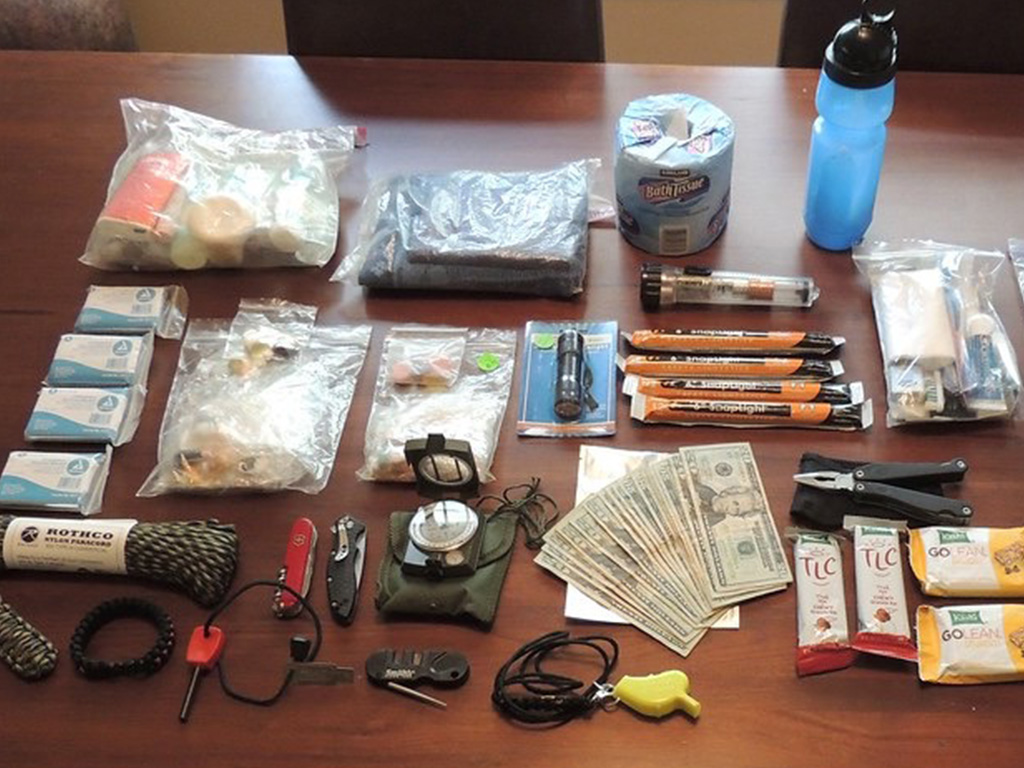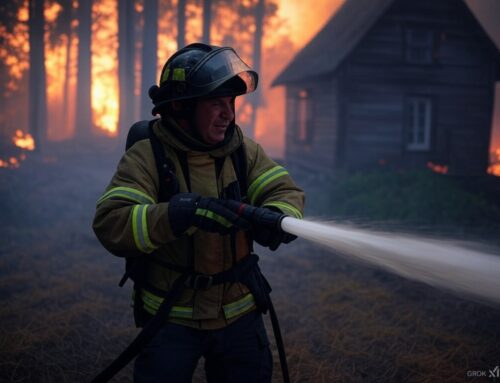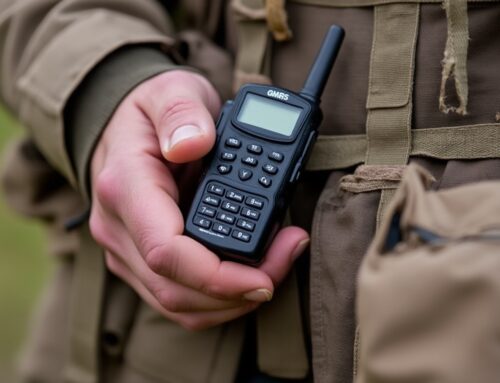Not being able to go through our daily lives as we normally do is something no one wants to imagine. But with events happening in our world today, the possibility of this change is real. Even so, we needn’t be frightened, panic, or feel alone. KSRG can help you prepare. KSRG is a non-profit team of volunteers dedicated to building community resilience in the face of crisis. Our team consists of experts in emergency management, public health, and community development who work together to ensure our community is prepared for any situation.
Our members hail from diverse backgrounds and bring a wealth of knowledge and experience to the table. From first responders to healthcare professionals, KSRG has a team of highly qualified individuals committed to making Kootenai County a safer, more resilient place to live. The goal is to have thousands of Kootenai County residents become KSRG members. This will help neighborhoods across our county come together, look out for one another, stabilize situations, and communicate to other members county-wide as to what our immediate needs are, where emergency help and/or services are, and where residents can seek help.
If you haven’t registered with KSRG yet, you can do so by going to KSRG.org. Click on Contact and scroll down to the form. Be sure to fill in the comment section as to how you would like to contribute to this group. Even if it’s going through your neighborhood to let others know about this organization, KSRG wants you to be a part of the team!
Getting Organized
Below are simple ways you can prepare for emergencies, whether they be natural, manmade, another pandemic, or any other crisis that may disrupt our daily “normal.” Many of the items or suggestions listed below are things you may already have on hand or things you must buy now.
If you need to get new items, first decide on which you feel are necessary for your household and get those first. If you keep a list of what you have and where you put the items, you can add to it as you increase your supplies. Food, water, medical, and safety are the most important.
If you’ve not started collecting extra water or food items, start with gathering enough for a month. Then increase to a 3-month supply, a 6-month, a 9-month, and then a year’s supply. When purchasing food, buy what you like to eat that has a shelf life of a year or more. Your goal: 1500 calories a day per person. Items with a shorter shelf life should be stored in your daily pantry if possible. Buy extra when you can. This way you won’t run out of these favorites if an emergency arises.
You can store items that have a longer shelf life in plastic bins and label the bins with the year you will need to cycle through the items. Checking your bins in January helps make this more manageable. For example, if you buy a case of marinara sauce that is good through June 2026, put this item in a bin labeled 2026. Then in Jan of 2026, you can pull the items from that bin to use throughout the year and replace these with newly purchased items. This bin might now be labeled 2028 or 2029 depending upon the food you replace it with and the expiration date on these items. By doing this, you know you will have food that won’t spoil and you’re not wasting money or food because you are checking on it and cycling it every year.
Food Suggestions:
- Rice (white rice stores best)
- Dried beans
- Canned beans
- Canned fruit and vegetables
- Canned meat (examples: tuna and chicken)
- Pasta and pasta sauce
- Soups
- Freeze dried foods in small #10 cans. (One brand many people purchase is Augason Farms. It’s sold at Walmart and Amazon. They even have freeze dried butter.)
- Nuts
- Peanut butter/Almond butter
- Crackers
- Dehydrated potato flakes
- Granola/dried cereal
- Oatmeal
- Pancake mix (don’t forget the syrup!)
- Powdered milk
- Flour
- White sugar
- Almond milk that doesn’t need refrigeration. (Costco is a good place to buy this)
- Powdered protein
- Protein drinks (Ensure or the Kirkland Brand are sold at Costco)
- Protein bars (Like Think Bars—also sold at Costco. And they actually taste good…20 grams of protein and 0 added sugar!)
- Salt, pepper, and other spices such as powdered garlic, onion, and other herbs and seasonings you like.
Again, the key is to get food you and your family will eat—just get a lot more of it. Start small… one month, 3 months, etc.! Organize it all into bins and cycle through it. This way, you have a good supply on hand if an emergency does occur, but you will still eat it and won’t be throwing money out the window. For dried items, you can buy mylar bags online to extend the shelf life of your food.
Another thing to consider is how you will cook the food if the power is out. Grill, wood stove, solar? Also, do you have the right pans for cooking on these alternate fuel sources? Cast iron pots are good options as they can be used on regular stoves and ovens as well as propane, gas, and wood burning fires/stoves.
Another option: buying Prepared Freeze Dry food buckets, but they can be pricey. Still, it’s suggested you have a few of these on hand if you can work these into your budget. The advantage? They have a shelf life of 25-30 years. Once you purchase them, you won’t need to worry about it for a very long time! Here’s a list of brands that are highly rated:
- My Patriot
- 4Patriot
- Ready Wise
- Augason Farms
- Mountain House
Finally, think about all the food sources we have here in our beautiful county:
- Do you have fishing gear so you can fish in our lakes, rivers, and streams?
- Do you have guns, bows, and knives for hunting?
- Have you thought about gardening? Even a small container garden with a few vegetables would benefit you greatly. You don’t have to own a huge piece of land to do this, either. You can have a container garden on a balcony in a high-rise! And don’t forget to buy extra seeds for the future.
Water
It’s suggested you have one gallon of water per day per person. This is not only for drinking, but other purposes as well. In the Waste/Sanitation section, water for toilets and other uses is discussed. This section will focus on drinking water. In the event our city water is turned off, our water source is contaminated, or you can’t access the water in your well, here are some suggestions:
- Stock up on bottled water. Every time you go to the store, grab a couple of cases. Store them in your garage, closets, under the beds…wherever you have room! Also, if you have extra reusable water bottles, fill these with water. As you use them, refill.
- Consider buying water storage containers/cisterns. You can purchase 55 gallon containers, 65 gallon, 100 gallon, 200 gallon, on up. North 40 and Tractor Supply are local stores that carry these larger containers. They can also be purchased online. Where you store these containers will determine the size and type you buy. Be sure they are food grade as this is for drinking. Also, if you plan on storing the containers outside, get the blue or black containers. The clear containers are for inside storage. If you store the clear containers outside, you will battle algae. Also, you will need to clean the containers with a bleach solution and rinse and drain them a couple of times before filling them with clean water. Then when you fill your container, you will need to add bleach to make sure the water stays pure.
What follows is the suggested solution:
- Water stored in thoroughly clean plastic or glass containers can be chemically disinfected for long-term storage by treating each gallon with 4 to 5 drops of unscented liquid chlorine bleach (Clorox or Purex type bleaches, containing 4% to 6% sodium hypochlorite). One teaspoon of bleach disinfects 5 gallons of water. Or you can purchase water purifying tablets/powders.
- Do you have a water filtration device, such as a Berkey or Brita water pitcher? Make sure you have extra filters on hand.
- Get water purification tablets/powder. You may have to use a water source such as a fountain, lake, river, or stream for your water. Or if you can, use rainwater. But before drinking the water you collect; you will need to purify it. Boiling the water will kill most bacteria, viruses, etc. But boiling water will not filter out dirt and debris. You may want to consider purchasing a product like P&G Purifier of Water Portable Water Purifier Packets. These can be purchased on Amazon. This product is a powder that will clean 2.5 gallons of water per packet. Not only does it disinfect the water, but it will filter out dirt and other debris. You will need a couple of buckets and cotton cloth like cheesecloth or cotton towels when using this product. Look it up on YouTube. There are other products, too. Find the one that would work best for your needs and budget.
Cleaning Supplies
You want to make sure you keep things as sanitary as possible in a crisis. In emergency situations, unsanitary conditions can cause serious illnesses. Since washing machines may be unavailable, ensure you have clean buckets or sinks where you can soak and clean clothes, towels, sheets, etc. Below are items you want to have on hand. (Again, you will want to have plenty of extras of each):
- Dish soap
- Laundry soap
- Bar soap
- Hand sanitizer
- Baby wipes (good for hands, bottoms, and keeping fresh when bathing isn’t an option.)
- Bleach
- Vinegar
- Baking soda
- Extra spray bottles you can put cleaning solutions in to eliminate germs on surfaces
- Sponges
- Microfiber towels
- Paper towels
- Plastic gloves
Personal Care Items
Keeping yourself clean and groomed not only helps you stay physically healthy, but it can help you maintain emotional wellness. Make sure you have extra personal care items. These may include:
- Toothpaste
- Extra toothbrushes
- Razors
- Bar soap
- Lotion
- Sunscreen
- Dental Floss
- Deodorant
- Shampoo
- Dry shampoo
- Q-tips
- Extra packages of underwear and socks may be handy.
- Backup pairs of sneakers and boots.
If you have young children, make sure to stock up on items they may need. If your little ones still wear diapers, have extras of the size they are in now and the next size or two up. Another solution is buying cloth diapers. In the event an emergency situation lasts a time, cloth diapers are a great option as they can be easily cleaned in soapy water with a little bit of bleach and used over and over again. Plus, it will cut down dramatically on your trash. The same is true for clothing. If you have little ones, they grow fast so try to have a couple of items the next size or two up. Emergency or not, you will use these items.
Waste/Sanitation
If you are on city water and it isn’t working, how will you take care of waste? Or if you have a well but the electricity isn’t working, how do you get your water? Not a desirable thought but doing simple things can help. Using your good, clean drinking water to flush your toilet shouldn’t be the plan.
- If you have access to a water source, have a couple of buckets available to collect the water and bring it back home. Be sure to have a lid on your buckets so water doesn’t spill out. Also, a wagon or dolly will make getting the water back home less grueling. Besides the lakes and rivers we have nearby, there are many golf courses and communities with large ponds.
- If you don’t have access to a water source, you may want to plan ahead by purchasing large trash cans, fill them with water, and have a smaller bucket you can use to transfer water into your house. This water will be for your toilet and not drinking. (Unless you purify it!). As long as it stays clean, you can also use this water for sanitation like cleaning hands, bathing, etc.
- If you don’t think you’ll have access to indoor plumbing…no worries. Get a 5 gallon bucket, pool noodle, and a few other items to make your own toilet. Here’s a link to learn more. Get those trash bags: https://www.youtube.com/watch?v=IIjBQAWPvg8
Daily Supplies
- Trash bags. Get lots of trash bags. More than you think you’ll need! If the city garbage trucks aren’t running, you will need to have a place to put your trash. You may also want to consider getting a steel burn barrel to burn trash. Facebook market place has good prices. Here’s a link to a video: https://youtu.be/SuuJEZmRYMU?si=cDumIJ5b_WxO0Ehd
- Water may be scarce, so plan ahead. You don’t want to waste good water on washing dishes, so get plenty of paper plates, cups, and disposable utensils. You can burn most of this in your steel burn barrel.
- Stock up on paper towels, napkins, tissue, and TP. You may want to buy some water baby wipes to avoid having to use too much TP.
- Buy small cotton towels and microfiber towels you can use for cleaning. These can be reused multiple times, thus cutting down on paper waste.
Power/Fuel
- Get extra gas for your car.
- BBQ with extra propane if you have a propane grill. Make sure you have extra lighters.
- If you have a charcoal grill, get plenty of charcoal, lighter fluid, and lighters.
- Solar cookers also work well if you do not have access to propane or charcoal grills. Here are a couple links to ones that have good reviews:
- 2.0 SunUp Solar Cooker and Dutch Oven Kit (Amazon)
- Go Sun 1GG1D1P1 Ultra Portable Solar Oven (Walmart)
- Solar charger
- Generator. There are many types and sizes available. If you aren’t sure of the size you need for your home, check with an electrician. Often they can put a transfer switch on your electrical box to make sure your home’s most necessary appliances or outlets will be connected to your generator. Most generators will not power up your entire house.
- Have backup fuel for your generator. Getting a generator that can use more than one type of fuel is helpful. In other words, get one that’s propane as well as gasoline. Or one that runs off natural gas and gasoline. Or one that runs off all three. Or invest in a solar generator. Jackery has been recommended as a good solar option. You may want to get a Faraday cover for your generator, too.
- If you don’t have a generator, do you have a way to heat your home? Wood/pellet stoves are great, but make sure you have plenty of fuel. Having many blankets is important, too.
- Check your supply of lighters and matches often. Make sure you have plenty and keep the matches in a waterproof container.
First Aid
- Gauze (lots and lots of gauze rolls)
- Nonstick pads
- Self-adherent medical wrap tape
- Paper tape
- Band-Aids
- Peroxide
- Rubbing Alcohol
- Tweezers
- Medical scissors
- Needle and Medical Thread (you may need to stitch someone up!)
- Super glue (good for closing small cuts)
- Ibuprofen and Tylenol
- Antacids
- Imodium pills
- Pepto-Bismol
- Hand Sanitizer
Medicalgearoutfitters.com is a good site for ready-made first aid kits. You can also buy extra “add-ons” like tourniquets and other supplies.
Medicine
Check with your doctor to see if extra prescriptions can be written. You may have to pay out of pocket, but if medicine is something you need to stay alive, you want to make sure you have several months in reserve. Have at least a year reserve if possible.
If you cannot get ahold of your doctor, go to these online medical sites:
You may be able to get needed prescriptions and other medicine such as an emergency supply of antibiotics through these services.
Safety
Think about things you will need to safely maneuver around your home.
- Flashlights/lanterns and extra batteries (if you’re lights are LED, you may want to store them in a Faraday bag. See description below.)
- Candles and matches
- Locks/boards to keep your doors and windows secure
- Duct tape/visqueen in case you need to seal doors and windows
- Tarps to cover items and to use to trap rainwater
- Twine/rope
- Self-defense tools/weapons
Tools
We could be without power, so good old fashioned hand tools may come in handy. And don’t forget a couple of pairs of work gloves!
- Screwdrivers
- Hammer
- Saw
- Wire cutters
- Nails and screws
- Wrenches
- Drill (you may want to keep this and the battery charger in a Faraday bag)
Faraday Bags
Faraday bags are small, portable, affordable accessories that block electromagnetic fields. They are more practical versions of the mighty Faraday cage. You can purchase Faraday material to make your own bags/cages or you can buy Faraday bags already made and ready to use. Below are a couple of sites you can use to learn more about these bags and cages:
Self Defense
Exercise your Second Amendment right to keep yourself and your loved ones safe. How do you plan to defend yourself and your family? How will you secure your home? Do you have a plan? Do you have the items necessary to implement your plan? These are all questions many may not feel comfortable discussing, but being able to defend yourself and your family, along with having a plan is important. There are many self-defense facilities, gun ranges such as Center Target that offer classes, and various other places you can go to learn skills.
Communication
Ham radios are a great way to stay connected. To communicate on most Ham stations, you must get a license. You may want to consider taking a class and/or purchasing the Ham Radio License Manual (2022 edition) to read and study before taking the test. There are members of KSRG that can guide you in this process. Below is a Ham Radio found on Amazon that has been suggested to KSRG members:
- Baofeng UV-5R Ham Radio Long Range UV5R Wakie Talkies Dual Band VHF UHF Rechargeable Handheld Two Way Radio for Survival Gear, 2Pack. Get the package that has the extra battery and an extra longer antenna.
If you don’t want to have a Ham radio, here’s another suggestion—a very inexpensive yet capable AM/FM/HF Shortwave Listening radio:
https://www.amazon.com/gp/product/B09GXM2196?th=1
SI4732 ATS-25 max-DECODER Radio Receiver, Version 4.17 Adds CW, RTty Decoding Function, WIFI Function, Four Audio Spectrum, DSP Receiver FM LW (MW and SW) and SSB Built-in 4000mA Lithium Battery
Watch a video at: https://www.youtube.com/watch?v=IyjFhs33ekk
Other items you may want to have ready in one location:
- Important home/life insurance information
- Birth Certificates/passports
- Medical cards
- Money (You decide how much you need. Smaller bills and coins are recommended.)
- Banking/Credit card information
- Will/Trust documents
- Back-up drive of computer. Keep this in a Faraday Bag.
Other resources that may be helpful: (Amazon Books)
- The Prepper’s Survival Bible: 20 in 1: The Long-Term Survival Guide to Face Any Scenario with Life-Saving Strategies, Stockpiling, Water Filtration, Off-Grid Living, and Self-Defense.
- No Grid Survival Projects: The Bible
- When Crisis Hits Suburbia: A Modern-Day Prepping Guide to Effectively Bug In and Protect you Family Home in a Societal Collapse (Ted Riley)
- civildefensemanual.com
- Good video to watch on YouTube: Prepping 101: The Step-by-step Guide to Surviving Global Chaos
Conclusion
Do what is best for you and your family. Starting with a one-month supply of food, plenty of water, and needed medicine is crucial. Don’t feel you must go out and achieve everything on this list at once. Do a little each week as time and finances permit.
Before prepping, take inventory of what you already have. You may be surprised; you may have a good start. Your items may just need to be reorganized in how they’re stored and rotated. Also when starting out, prep with food you know you will eat and rotate it so you aren’t causing financial burdens to your family.
Join groups like KSRG.org, talk with people who are prepping, watch videos, and have a plan in your own home and neighborhood. Most importantly, stay calm and keep your faith. Having knowledge and being prepared will go a long way in staying strong and making it through emergency situations without fear taking over. It’s better to be prepared for an emergency and not have one than to have an emergency and not be prepared.




